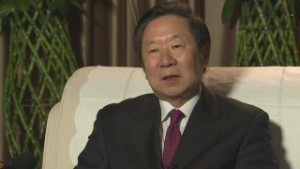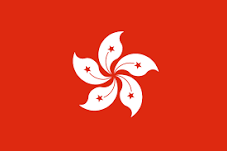Is Hong Kong's fight for democracy in its final round?
Could Hong Kong's fight for democracy be entering its final round?Six months after the end of the massive "Occupy" protests that paralyzed the city's streets last fall, another pivotal confrontation is brewing in the former British colony. It comes down to a Beijing-backed bill that could decide Hong Kong's future.
Lawmakers begin debating the bill Wednesday. If it passes, the city will be able to vote for its own leaders -- as long as China approves the candidates. If it doesn't pass, Hong Kongers may never be able to vote for their leaders at all.
It's a surprisingly complex story of a city struggling to transition from colonial to Chinese rule.
How did we get here, and what's coming next? Our guide will get you up to speed.
Hong Kong, China -- what's the difference?
Hong Kong is a small piece of land colonized by the British in 1841 and returned to Chinese rule in 1997. The majority of its 7 million people speak Cantonese, whereas most people in China speak Mandarin.
Officially, Hong Kong is a Chinese "special administrative region", under a principle called "One Country, Two Systems." In practice, that means Hong Kong is a Chinese territory, but maintains its own currency, government, and laws: Websites like Facebook and Twitter aren't blocked here, residents can protest and criticize the government, and the press is not censored by law.
This special status is set to expire in the year 2047.
So what's the conflict?
It's about a deal that hasn't been fulfilled.
When Britain returned Hong Kong to Chinese rule in 1997, the two countries agreed Hong Kong would enjoy a "high degree of autonomy" for 50 years and eventually develop an election system based on universal suffrage. But nobody agrees on what that actually means.
Read more: What is 'One Country, Two Systems'?

Many Hong Kongers strongly believe the city is entitled to free and open elections -- an interpretation that local authorities, backed by Beijing, staunchly oppose. Years of negotiations have failed to yield an agreement.
The conflict peaked dramatically last fall as pro-democracy Hong Kongers staged massive street occupations paralyzing key parts of the city in a bid to pressure authorities to make concessions.
That movement, known as "Occupy Hong Kong" or the "Umbrella Movement," enjoyed popular support among Hong Kong's youth and drew headlines around the world. No matter: The government refused to budge, condemning the protests and eventually clearing the sites after 79 days.
Watch more: What's next for Hong Kong's 'Generation Occupy'?
What has the Chinese government proposed?
Chinese authorities have proposed what they say is a fair and final offer: Hong Kongers may vote for their next leader, as long as the candidates are narrowed down and approved by the Chinese government.
A rolling poll of Hong Kongers shows views on the proposal are split down the middle -- nearly as many residents support it as oppose it.
This week, the city's Legislative Council will vote on the proposal: The bill needs two-thirds of the chamber's support to become law.
But just over one-third of the chamber is controlled by pro-democracy politicians, and they'vesworn to veto the bill. It doesn't seem likely that the Chinese government's proposal will pass.
If the bill doesn't pass, then what?
If Beijing's plan gets vetoed, the existing system for electing the city's leader will remain. That is, he or she will be chosen by a small committee that's stacked with Beijing loyalists.
Here's the ominous part for the city's pro-democracy activists: Central authorities have warned this may be Hong Kong's last chance to have "democracy." If this proposal gets shot down, then there won't be a new proposal -- possibly ever, they say.
However, the activists aren't buying it. They're determined to fight for "real universal suffrage" -- an election in which anyone can run and anyone can vote.
They haven't given a clear explanation of how they plan to achieve this. But if the past is any indication, they'll continue to try a mix of negotiation, campaigning, and civil disobedience -- again, and again, and again.
What's in store for Hong Kong's future?
The increasingly intense struggle for democracy has created a new era in Hong Kong's political climate. A generational gap has opened up between young people, who tend to support democratic reforms, and the older generation, who are comparatively more sympathetic to the establishment.
Meanwhile, the share of Hong Kongers who identify as Chinese has dropped. Some ardently anti-mainland activists -- known as "localists" -- have grown more vocal since last fall's Occupy movement. A radical minority of them go as far as to advocate for an independent Hong Kong.
Localists found themselves under scrutiny Monday after police arrested 10 people with suspected ties to "local radical groups" in an alleged bomb plot -- though pro-democracy activists have questioned the validity of the accusations.
News Courtesy: www.cnn.com











